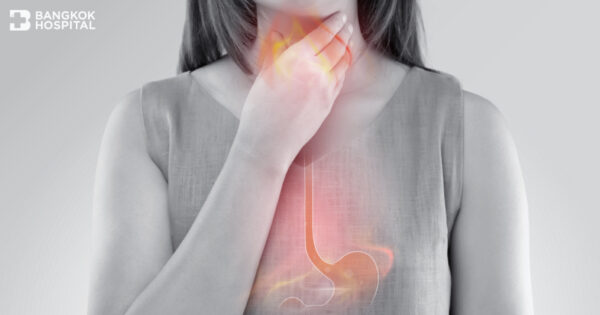If you have symptoms of gastroesophageal reflux disease (GERD) and have been using acid-reducing drugs or other drugs in the PPI group for more than 2 weeks without improvement, you should see a gastroenterologist and intestine specialist. Depending on the severity of the disease, treatment must include lifestyle changes such as exercise, diet, in addition to taking medication or surgery, which is the last resort.
Lifestyle Changes to Treat GERD
Lifestyle Changes to treat gastroesophageal reflux disease (GERD) include- Quit smoking
- Avoid foods and drinks that worsen symptoms
- If overweight, lose weight
- Eat smaller meals but more frequently
- Wear loose clothing, do not wear too tight clothes
- Avoid lying down within 3 hours after eating
- Elevate the head of the bed 6 – 8 inches. Using extra pillows will not work because it may bend your body.
What to Notice When Experiencing GERD
Points to Remember about Gastroesophageal Reflux Disease (GERD) include
- Frequent heartburn is a common and often occurring symptom in adults with GERD. If you have heartburn more than twice a week, it is considered a risk or chance of having GERD.
- GERD can occur without chest pain symptoms.
- Other symptoms indicating GERD include dry cough, asthma, and difficulty swallowing.
- If you have been using acid-reducing medication for more than 2 weeks without improvement and in severe cases, it is recommended to see a gastroenterologist.
- Usually, doctors will recommend lifestyle or dietary changes to help improve symptoms. Medication is necessary for treatment, but surgery will be the last option.
- Most infants with reflux will still be healthy, even though they may have frequent spitting up or vomiting. Most of these symptoms will disappear after 1 year or upon reaching the age of 1. If symptoms persist for more than a year, it should be assumed that the child may have GERD and a doctor should be consulted.
- Long-term and continuous reflux conditions, including arching back and irritability in children, or having frequent stomach or chest pain in older children, as well as chronic coughing, vomiting, and respiratory issues, indicate GERD.










